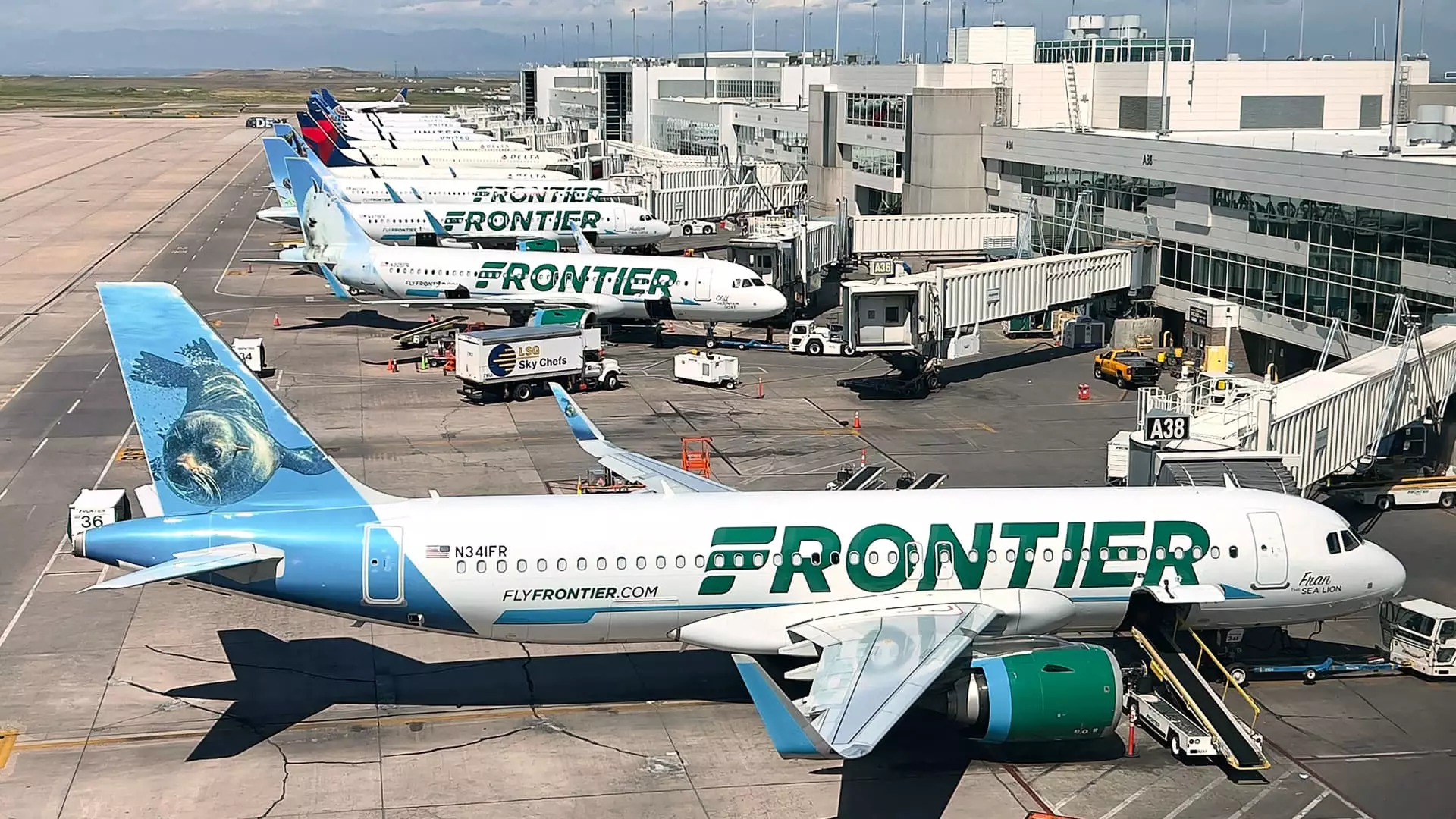Frontier Airlines, a leading player in the budget airline sector, is making a significant shift in its service strategy by introducing first-class seating on its flights. This initiative marks a decisive move in the highly competitive airline industry, as carriers increasingly vie for higher-paying passengers seeking upgraded experiences. Beginning in September, Frontier plans to remove the first two rows of its standard three-by-three economy seating arrangement, replacing them with four first-class seats presented in a two-by-two layout.
This innovative change reflects a broader industry trend aimed at providing more personalized space and service options within the budget sector, traditionally characterized by minimal frills. By targeting passengers willing to invest a little extra for comfort, Frontier aims to enhance its offerings and boost its overall financial performance.
In addition to the introduction of first-class seating, Frontier is overhauling its loyalty program to offer significant incentives for frequent flyers. Among these enhancements are complimentary seat upgrades for Gold level members and above, contingent upon availability, along with the provision of a free companion ticket for elite Platinum and Diamond members. Furthermore, starting in mid-2025, customers will have the opportunity to utilize their earned miles to cover seat upgrades and baggage fees.
These changes are intended not only to attract existing customers back into the fold but also to foster loyalty among new passengers seeking value for their travel expenditures. The company’s CEO, Barry Biffle, underlined the anticipated impact of these adaptations, predicting a financial boost of approximately $250 million by 2026, with projections of more than $500 million by 2028.
Biffle articulated that while Frontier Airlines maintains the lowest operational costs among its peers, it has struggled with a compelling revenue model. The absence of first-class options and insufficient rewards for loyalty program members were identified as key weaknesses. He has confidently stressed that the integration of first-class seating will serve as a “game changer” for both the airline’s infrastructure and its financial trajectory.
As competition intensifies, particularly from legacy carriers such as Delta and United, which dominate industry profits, Frontier will be compelled to carve out its niche among budget airlines. This rivalry has led established players to innovate with premium offerings while smaller airlines, like JetBlue, also strive for a slice of the lucrative market segment.
The introduction of first-class seating will position Frontier uniquely against competitors who provide additional amenities, such as full meal services or enhanced customer support. Nevertheless, Biffle asserts that Frontier’s pricing strategy will keep the new seating options attractive to cost-conscious travelers.
Moreover, other budget airlines are also adapting to maintain market competitiveness. For example, Southwest Airlines is moving to incorporate extra-legroom seating and seat assignments, a marked change from its historical open-seating policy. In contrast, Spirit Airlines recently filed for Chapter 11 bankruptcy while maintaining its “Big Front Seat,” an option similar to domestic first-class accommodations.
As Frontier puts these enhancements into action, it will be intriguing to observe how this strategy influences customer preferences and industry dynamics. By elevating its service offerings, Frontier hopes to secure a stronger foothold in the evolving landscape of air travel, catering to both budget-conscious and premium travelers alike.

Leave a Reply